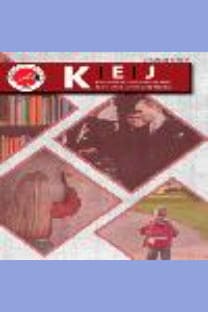Lise Öğrencilerinin Bireysel ve Grup Argümanlarının Kalitesinin Karşılaştırılması
argümantasyon kalitesi, işbirliği, bireysel argüman, grup argümanları
A Comparison Of The Individual and Group Arguments Of High School Students
___
- Aldağ, H. (2006). Toulmin Tartışma Modeli. Çukurova Üniversitesi Sosyal Bilimler Enstitüsü Dergisi 15(1). 13-34
- Bell, P. and Linn, M. (2000).Scientific Arguments as Learning Artifacts: Designing for Learning from the web with KIE. International Journal of Science Education 22(8) 797-817
- Billig, M. (1987). Arguing and thinking: A rhetorical approach to social psychology. Cambridge.
- Bricker, L.A. and Bell, P. (2008). Conceptualizations of Argumentation From Science Studies and the Learning Sciences and Their Implications for the Practices of Science Education. Science Education, 92 (3), 473-498
- Cho, K., and Jonassen, D. H. (2002). The Effects of Argumentation Scaffolds on Argumentation and Problem Solving. Educational Technology Research and Development 50 (3) 5-22
- Clark, D., & Sampson, V. (2006, April). Characteristics of students’ argumentation practices when supported by online personally seeded discussions. In annual meeting of the National Association of Research in Science Teaching, San Francisco, California.
- Demirel, R. (2015). The effect of individual and group argumentation on student academic achievement in force and movement issues/Kuvvet ve hareket konularında bireysel ve grupla argümantasyonun öğrencilerin akademik başarılarına etkisi. Eğitimde Kuram ve Uygulama, 11(3), 916-948.
- Driver, R., Newton, P. and Osborne, J. (2000). Establishing the Norms of Scientific Argumentation in Classroom. Science Education 84(3) 287-312
- Erduran, S. (2008). Methodological Foundations in Study of Argumentation in Science Education. Erduran S., Jimenez Aleixandre M.P. (Editörler). (2008). Argumentation in Science Education- Perspectives from Classroom Based Research. UK. Springer Science.
- Erduran, S., Simon, S. and Osborne, J. (2004). TAPping into argumentation: Developments in the application of Toulmin's Argument Pattern for studying science discourse. Science Education, 88, 915-933.
- Evagorou, M., & Osborne, J. (2013). Exploring young students' collaborative argumentation within a socioscientific issue. Journal of Research in Science Teaching, 50(2), 209-237.
- Hogan, K., Nastasi, B. K., & Pressley, M. (1999). Discourse patterns and collaborative scientific reasoning in peer and teacher-guided discussions. Cognition and instruction, 17(4), 379-432.
- Jimenez-Aleixandre, M.P., Rodriguez, B.A and Duschl, R.A. (2000). “Doing the lesson” or “Doing Science”. Argument in high school genetics. Science Education, 84, 757-792
- Kelly, G. J., & Takao, A. (2002). Epistemic levels in argument: An analysis of university oceanography students' use of evidence in writing. Science education, 86(3), 314-342.
- Knudson, R.T. (1992). Analysis of Argumentative Writing at Two Grade Levels. Journal of Educational Research. 85 (3) 169-179
- Macagno, T. and Walton, D. (2006). Argumentative Reasoning Patterns. Proceedings of 6th CMNA (Computational Models of Natural Argument)Workshop, ECAI (European Conference on Artificial Intelligence), Rivadel Garda, Italy, August 28 - September 1, Trento, Italy,
- McNeill, K. L., Lizotte, D. J., Krajcik, J., & Marx, R. W. (2006). Supporting students' construction of scientific explanations by fading scaffolds in instructional materials. The Journal of the Learning Sciences, 15(2), 153-191.
- Muijs, D. and Reynolds, D. (2005). Effective Teaching- Evidence and Practice-Second Edition. Sage Publications. London
- Nussbaum, E.M. (2002). Scafollding Argumentation in the Social Studies Classroom. The Social Studies. 93(2) 79-83
- Osborne, J. (2005). The Role of Argument in Science Education. Boersma, K.; Goedhart, M.; de Jong, O.; Eijkelhof, H. (Editörler.). (2005) Research and the Quality of Science Education. Netherlands. Springer.
- Osborne, J., Erduran S. and Simon, S. (2004). Enhancing the Quality of Argumentation in School Science. Journal of Research in Science Teaching. 41 (10) 994-1020
- Sampson, V. D. (2007). The Effects of Collabration on Argumentation Outcomes. Arizona State University. Unpublished dissartation of Philosophy
- Sampson, V. and Clark D. B. (2008). Asssesment of the Ways Students Generate Arguments in Science Education: Current Perspectives and Recommendations for Future Directions. International Science Education 92 447-472
- Sampson, V., & Clark, D. (2009). The impact of collaboration on the outcomes of scientific argumentation. Science Education, 93(3), 448-484.
- Schwarz, B. B., & Glassner, A. (2003). The blind and the paralytic: Supporting argumentation in everyday and scientific issues. In Arguing to learn (pp. 227-260). Springer Netherlands.
- Yalçın-Çelik, A. Y., & Kılıç, Z. (2014). The impact of argumentation on high school chemistry students’ conceptual understanding, attitude towards chemistry and argumentativeness. Eurasian Journal of Physics and Chemistry Education, 6(1).
- Yıldırım, A. ve Şimşek, H. (2000). Sosyal Bilimlerde Nitel Araştırma Yöntemleri (Gözden geçi-rilmiş 7. baskı). Ankara: Seçkin Yayıncılık.
- Zohar, A. and Nemet, F. (2002). Fostering Students’ Knowledge and Argumentation Skills Through Dilemmas in Human Genetics. Journal of Research in Science Teaching 39 (1) 35-62.
- ISSN: 1300-8811
- Yayın Aralığı: Yılda 4 Sayı
- Başlangıç: 1992
- Yayıncı: -
İşbirlikli Öğrenme Yönteminin EBOB-EKOK Konusu Öğretimindeki Etkililiği
Fatma CUMHUR, Hülya ELMAS BAYDAR
Lise Öğrencilerinin Bireysel ve Grup Argümanlarının Kalitesinin Karşılaştırılması
Mehmet Akif HAŞILOĞLU, Hatice Betül YAĞCIOĞLU
Ortaokul Matematik Öğretmen Adaylarının Matematiksel İletişimleri, Matematik ve Pedagoji Bilgileri
Okul Öncesi Öğretmen Adaylarının Kültürel Zeka Düzeyleri ve Çok Kültürlü Eğitime Yönelik Tutumları
Fen, Teknoloji, Mühendislik, Matematik (STEM) Eğitimi Tutum Ölçeğinin Türkçe’ye Uyarlanması
Hülya YILMAZ, Melike YİĞİT KOYUNKAYA, Fulden GÜLER, Selcen GÜZEY
Duyu Eğitiminin Otistik Çocukların Alıcı Dil Gelişimine Etkileri
Sunay YILDIRIM DOĞRU, Duygu ÇETİNGÖZ
Mithat ELÇİÇEK, Ferhat BAHÇECİ
8. Sınıf Öğrencilerinin Matematik Kaygı Düzeylerinin Bazı Değişkenler Açısından İncelenmesi
